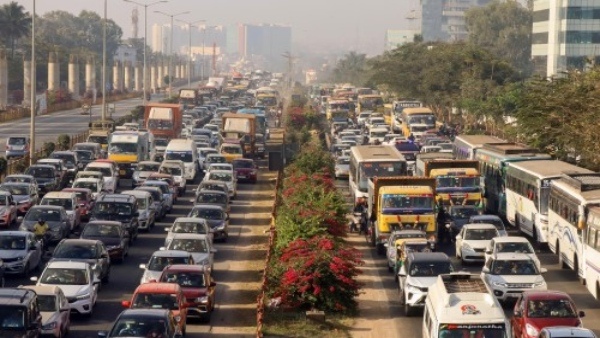Karnataka Government’s ban on carpooling in Bengaluru raises concerns and leads to debates about its impact on traffic and pollution. Find out more about the decision and public reactions.
Bengaluru, Karnataka – In a move that has sparked widespread controversy, the Karnataka Government has imposed a ban on carpooling in Bengaluru, the bustling tech hub of India. The decision, which came in response to demands from taxi driver associations, has left residents divided and questioning its implications for the city’s traffic and environment.
Carpooling, a practice widely adopted by IT workers during rush hours to alleviate traffic congestion and reduce the number of vehicles on the road, has been a lifeline for many commuters in Bengaluru. Services provided by ride-hailing apps like BlaBla Car, Quickride, Rideshare, Commute Easy, and Carpool Adda have allowed individuals to share their rides, making daily commutes more affordable and eco-friendly.
However, the ban announced by the Karnataka transit authority has declared the use of whiteboard vehicles for commercial carpooling as unlawful. Violators of this ban could face fines ranging from ₹5,000 to ₹10,000. The decision follows complaints and demands from taxi driver unions, who argue that carpooling services are impacting their income negatively.
Bengaluru, with its population of 11 million, has the highest traffic density among major Indian cities, boasting approximately 12.5 million vehicles – nearly one for every resident. The recent traffic gridlock, particularly on Bengaluru’s Outer Ring Road, home to numerous IT parks and global businesses, has led to extended commute times for many.
The ban has stirred public reactions, with netizens taking to social media to express their concerns. Many question how this decision will benefit commuters and whether it will exacerbate traffic congestion and pollution in the city.
“Cauvery or Carpooling, political will should be prioritized, not political compromise,” commented one user, highlighting the need for a balanced approach to governance. Others criticized the karnataka government for allegedly favoring taxi and auto rickshaw unions at the expense of the broader commuter population.
The recent ban on carpooling comes after demands from taxi driver associations and ongoing discussions about banning bike taxis in Bengaluru, a topic the Karnataka government plans to review.
As Bengaluru grapples with its traffic woes and seeks solutions to improve the daily commute experience for its residents, the ban on carpooling remains a contentious issue that will likely continue to be debated in the days to come.
